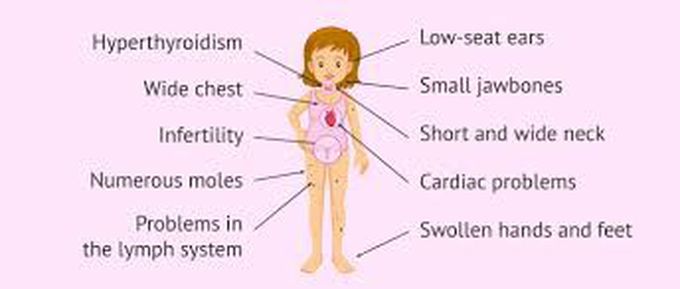


Symptoms if turners syndrome
Symptoms Signs and symptoms of Turner syndrome may vary among girls and women with the disorder. For some girls, the presence of Turner syndrome may not be readily apparent, but in other girls, several physical features are apparent early. Signs and symptoms can be subtle, developing slowly over time, or significant, such as heart defects. Before birth Turner syndrome may be suspected prenatally based on prenatal cell-free DNA screening ― a method to screen for certain chromosomal abnormalities in a developing baby using a blood sample from the mother ― or prenatal ultrasound. Prenatal ultrasound of a baby with Turner syndrome may show: Large fluid collection on the back of the neck or other abnormal fluid collections (edema) Heart abnormalities Abnormal kidneys At birth or during infancy Signs of Turner syndrome at birth or during infancy may include: Wide or weblike neck Low-set ears Broad chest with widely spaced nipples High, narrow roof of the mouth (palate) Arms that turn outward at the elbows Fingernails and toenails that are narrow and turned upward Swelling of the hands and feet, especially at birth Slightly smaller than average height at birth Slowed growth Cardiac defects Low hairline at the back of the head Receding or small lower jaw Short fingers and toes In childhood, teens and adulthood The most common signs in almost all girls, teenagers and young women with Turner syndrome are short stature and ovarian insufficiency due to ovarian failure. Failure of the ovaries to develop may occur at birth or gradually during childhood, the teen years or young adulthood. Signs and symptoms of these include: Slowed growth No growth spurts at expected times in childhood Adult height significantly less than might be expected for a female member of the family Failure to begin sexual changes expected during puberty Sexual development that "stalls" during teenage years Early end to menstrual cycles not due to pregnancy For most females with Turner syndrome, inability to conceive a child without fertility treatment

